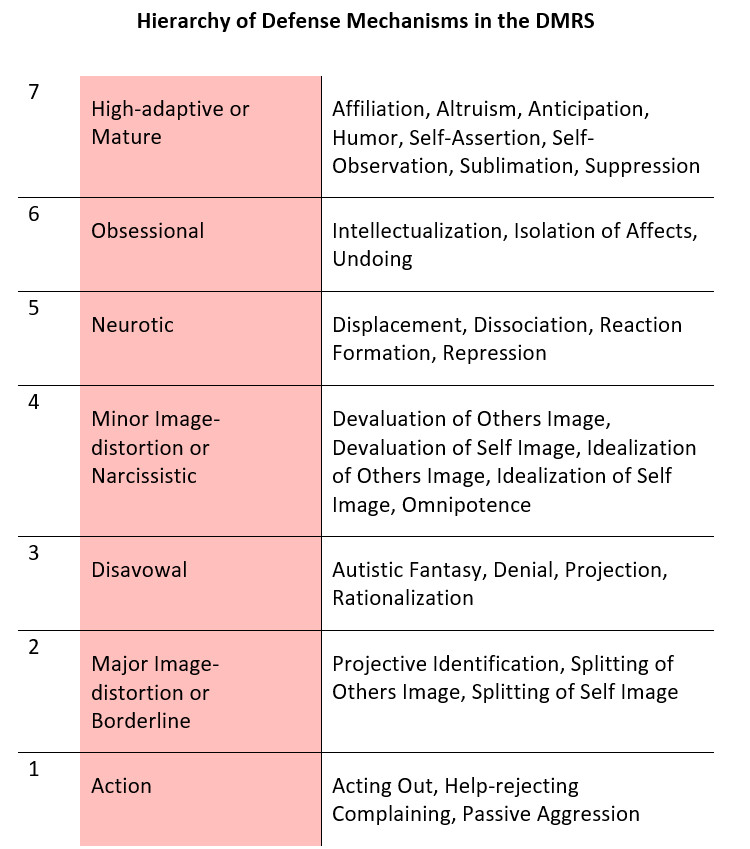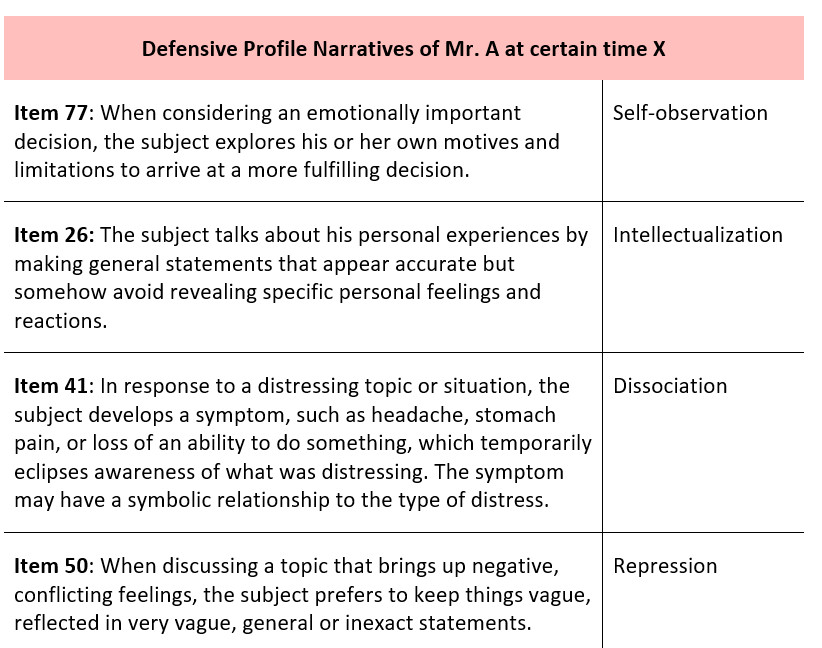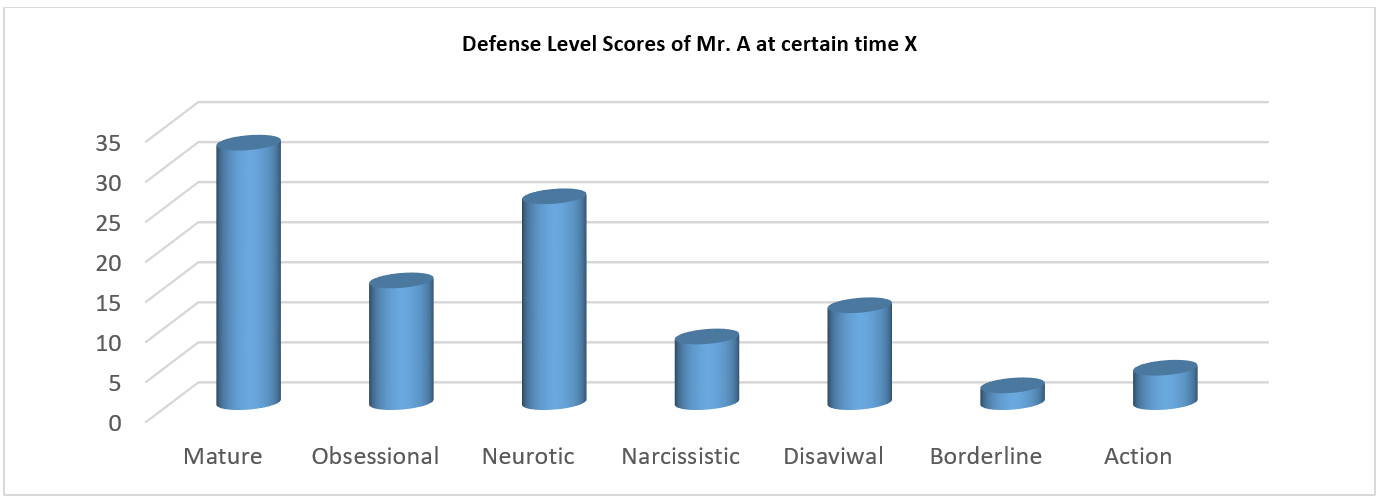The DMRS-Q
The DMRS is an observer-rated method for assessing defense mechanisms developed by John Christopher Perry. The DMRS is close to a criterion standard measure, from which the qualitative Provisional Defense Axis in Appendix B of the DSM-IV) was largely modeled. The DMRS provides definitions of 30 non-psychotic level defenses, including descriptions of the function of each and how each defense may be discriminated from other similar defenses.

The DMRS comprises four different levels of scoring:
1) individual defense score (percentage score of each of the thirty defenses);
2) defense level scores (percentage scores of each of the seven defense levels);
3) Overall Defensive Functioning (summary score of defensive maturity); and
4) qualitative scale of definite and probable examples of the defense.
The DMRS showed good convergent and discriminant validity for the overall hierarchy of defense mechanisms and acceptable to very good inter-rater reliability for all quantitative scores.
To use the DMRS method a clinical interview or therapy session video/audio recorded and transcribed is required. A specific training for raters is also necessary for reducing inference biases. Because of these time-consuming and often unavailable requirements, the DMRS has been mostly applied in research, while rarely used for clinical purposes.
The DMRS Q-sort (DMRS-Q)
With the aim of providing clinicians and researchers with a reliable and valid measure for detecting defense mechanisms, we created the DMRS-Q, a computerized Q-sort version of the DMRS.
The advantage of the DMRS-Q is that it does not require any specific intensive training nor transcripts of clinical interviews. However, to use the DMRS-Q, a rater should have clinical experience and a basic knowledge of the theory of defense mechanisms as conceptualized in the DMRS manual.
The DMRS-Q rating requires sufficient data about the evaluated subject, such as one or more clinical interviews or therapy sessions. After conducting or observing the subject, it takes about 30 minutes to complete a DMRS-Q rating. The original software is not available online, although the WebApp allows you to complete the rating process.

After completing the rating, the DMRS-Q web-app provides you the Defensive Profile Narratives, a qualitative profile of the subject’s defensive functioning, based on the most salient defenses rated (see the example besides).
Your rating will be processed by Authors using the DMRS-Q software, after which we send you a report containing both numeric and graphic scores of the 30 defense mechanisms, the 7 defense levels, and the Overall Defensive Functioning (see the example below).




